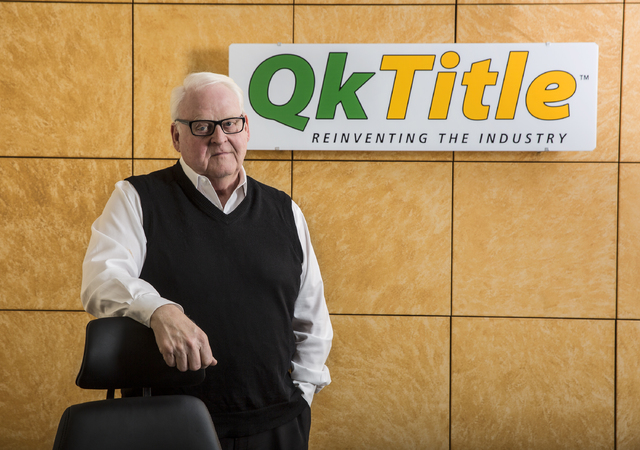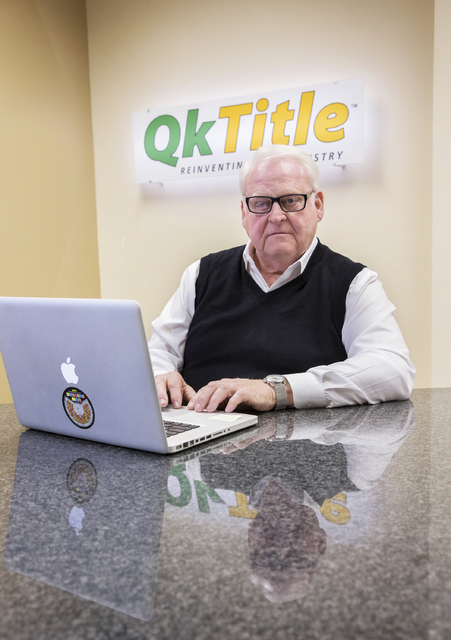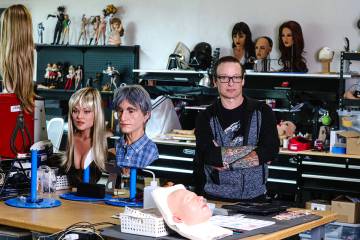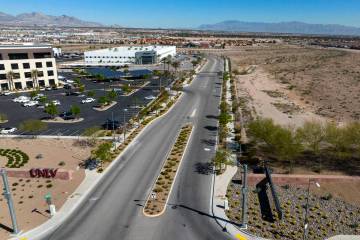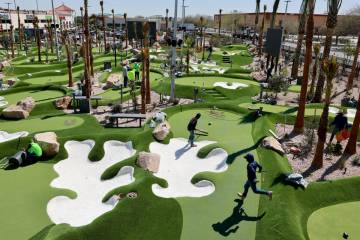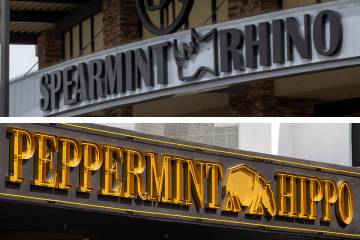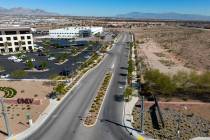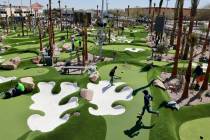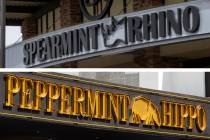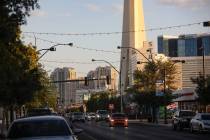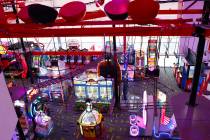Star of Las Vegas boom years launching new title company
If everything had gone to plan, Las Vegas would have dozens more condo and hotel towers than it does now, with high-rises from the southwest suburbs to downtown.
That was the vision of the bubble years last decade, when the valley, flooded with easy money, seemed to be moving full-speed toward a neck-craning, glitzier future. And one of the biggest evangelists of the “Manhattanization” of Las Vegas, as it was known, was Richard Lee.
“We’re talking to experienced people from Chicago, New York and London,” Lee, then-director of public relations at First American Title Co. of Nevada, said in 2004. “They look at this market and say it is just ripe, it is perfect and it is next.”
Lee was a star of the boom years, speaking at seminars and conferences about the roaring real estate market, including the many towers-to-come.
At the time, it seemed “most major economic or real estate-related gatherings” in the area “featured a pretty impressive multimedia presentation by Richard Lee,” Bruce Spotleson, director of corporate partnerships at Vegas PBS, told the Review-Journal this past week.
“He pretty much became known as the spokesman” of the Manhattanization push, Spotleson added, “maybe even its ambassador.”
Moreover, people “prayed” that Lee would mention their projects, and when his talks concluded, “it was hard to find a person who didn’t believe that we were in the center of the real estate universe,” Spotleson once wrote.
Of course, the bubble eventually burst, and Las Vegas went from being the epicenter of America’s real estate boom to the epicenter of its bust. The high-rise boom flopped with the rest of the economy: most of the planned condo towers never got built, and ones that did ran into problems ranging from litigation to plunging sales totals.
Now, Lee and partners are launching a new title company, QkTitle. Slated to open early next year, the company would let customers sign documents remotely and electronically, not have to come in for face-to-face gatherings.
Lee sat down with the Review-Journal recently. Edited excerpts:
Question: You were a major proponent of the high-rise boom. How much scorn did you get from people who blamed you for the crash?
A. Not a great deal of scorn — there were always those who wanted to find somebody to blame. But I was certain people started to get skeptical toward the end, with all these high-rises. We tried to have some kind a barometer of what was real because there was so many.
Q: Some brokers have told me it was common for people to buy a parcel of land, get approvals for a high-rise and then try to flip the site because they really had no intention of building a tower, only to boost the land value. Did you see that going on?
A: Oh, yeah. I sat in meetings with some of the biggest condo developers from the East Coast, from Florida and New York, and they’d look at the maps I’d prepare and say, ‘How do I get in this market?’ Anybody who had tied up a piece of land, those guys were prime to sell. The barometer of what was real was, Are you just a flipper or are you really building something?
Q: I’ve heard about the sales parties for these towers — I’m told one had caged lions at the entrance.
A: It was insane. They threw out the red carpet — they found the best strawberries dipped in chocolate, they found the biggest shrimp on the planet, they found the most beautiful girls and whatever else they could do to get you guys, the press, to go ‘Oh my God, did you see that?’
Q: But as the market crashed, did you get people who said it’s your fault, you inflated this?
A: I invested in land myself. I sold one parcel in Arizona, but the others I had here, I lost them to lenders. Basically my 401(k) just disappeared. I believed in it, and I got hurt. I got wiped out, just like most everybody else in town. I was not one of the lucky ones who figured out the right time to sell.
Q: How many conferences and seminars would you speak at about the high-rise boom?
A: It was more about overall growth than just high-rises. A lot of people try to throw me under the high-rise thing because it was so ridiculous, but at the same time, I was talking about the new casino projects, and that was an incredible story.
Q: When Las Vegas had a lot of abandoned construction projects after the market crashed, did you ever drive around and think, how did this happen?
A: I had a video presentation that starts out with all these projects going up, back to The Mirage, with high-rise cranes shooting up. Then comes 2008 and the video goes dead silent, then a tumbleweed, and it shows all these different fenced-up projects. It’s just like, who would have guessed? I made a presentation on what do you do now. All these projects will eventually sell and be built, but the question was, when was the money going to be available to do that — when do you buy a derelict property.
Q: Looking back at the boom years, did you ever think at the time where all the money was coming from?
A: Did I think about it more than it was just coming from Wall Street? No. There was so much capital coming out of there, and so much of it wanted to come to Vegas.
Contact Review-Journal writer Eli Segall at 702-383-0342 or esegall@reviewjournal.com. On Twitter at @eli_segall.



